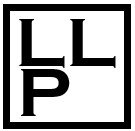Guest Post - Talking for Change
People may hear the word "library" and think Dewey Decimal (shudder). They may not know how charged that Dewey connection is within racial analysis. Those same people may imagine librarians sitting behind a circulation desk, with their glasses resting on their nose, reading a book and telling patrons to be quiet. I admit that would be an accurate description of several points throughout my day as a librarian at Sayre Public Library (although I never actually shushed anyone!).
However, when I wasn't checking out books to patrons, I was working with my fellow staff members imagining ways to transform our community from the inside out. Do you want to know what countless library staff are actually doing when they're not restocking bookshelves? Quietly plotting the revolution. A revolution grounded in accessibility, inclusion, and education.
My journey into the library world began with a community conversation I organized called "Shine A Light On Race." The Black Lives Matter movement was in full swing, our country was facing a reckoning with our inequitable past and present, and yet, in my small rural town, not much had changed. I didn't know how to go about healing white supremacy culture in my corner of the world, but I believed that our community needed to at least start having conversations about it.
A couple of weeks after the initial community conversation, our local Racial Equity Coalition met to discuss the next steps. Members spoke about the importance of educating our community on this topic through one of the most powerful tools this world has ever known: books. So, I reached out to the director of Sayre Public Library to discuss how we might make this possible. It turned out she had read about the community conversation I held and had been meaning to reach out to me, too. A month later, I was hired as the new Adult Services Librarian.
Our library’s mission to move towards fostering a racially equitable and inclusive community did not stop with curating a new collection. Throughout most of 2021, we facilitated a series of monthly community conversations and book discussions on racial equity and inclusion, followed by educational events open to one and all. The conversations we, as a community, had about racial equity and inclusion were like nothing I had ever witnessed. The ground rules we used for the conversations encouraged participants to draw on their own experiences, keep an open mind, share speaking time, and try to understand the views of those who disagreed with them.
One participant, who had been on the receiving end of racist aggressions, said that it was the first time he had ever shared his experiences with white folks and been listened to. Other participants spoke about how they had not realized they had been internalizing racism and upholding an unfair system. I was so deeply moved to see our community members come together, share their experiences, and learn alongside and from one another; I wanted this to be happening in every community, everywhere.
Luckily for me, I share that desire with the folks at Living Room Conversations. Since 2010, this organization has been working to build understanding across differences and bring conversations like these to living rooms - and libraries - across the country.
When the opportunity presented itself for me to help with this mission, I jumped at it. In my role as Libraries Partner at Living Room Conversations, I am able to help libraries become engaging community centers capable of offering and supporting civil dialogue programming through the use of our training and conversation guides. During these times of increasing polarization, Living Room Conversations in libraries continue to show me there is so much more that connects us than divides us.
Libraries are America’s most democratic institution. Public libraries represent their communities and are natural gathering places for the public. Because public libraries are accessible (in theory, at least) to everyone, they allow for voices to be included that might be otherwise marginalized. Libraries have the power to bring people of varying backgrounds, perspectives, and beliefs together to share their own, as well as listen to others, stories. They have unlimited potential to expand their community impact. When we build bridges within our communities, we connect people back to our shared humanity.
I believe real, sustainable, cultural change starts from the ground up. I don't know how we as a society achieve racial and gender equity. I don't know how we reverse climate change and bridge the wealth gap. I don't know how we heal our nation's political divides or address the countless social and environmental issues facing our nation and our world. But, I do know that if we want to stand a chance at changing things, we have to first talk about them. There is no better time than now for us to make a way for conversations in our communities - and public libraries can play a part.
Annie Caplan is the Libraries Partner for Living Room Conversations. She deeply believes in the power of community and grassroots movements. Annie loves connecting people and witnessing what can unfold when humans come together and share their stories. She aims to foster inclusive and accessible environments where folks feel comfortable showing up as their most authentic selves to engage in meaningful dialogue. In her free time, Annie can generally be found walking in the woods, singing and dancing, playing guitar, or enjoying a cup of tea with a good book.

